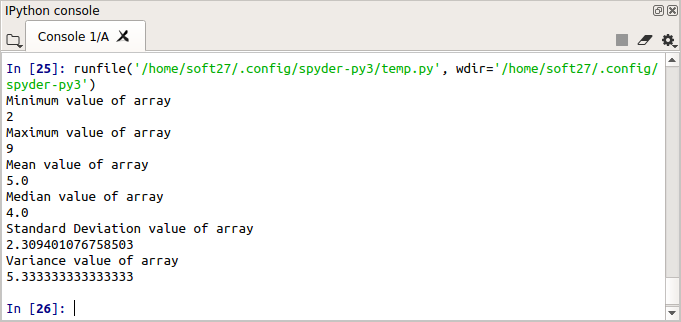To perform some statistical operations like mean, median,standard deviation, minimum, maximum and variance using python NumPy module.
NumPy stands for Numerical Python.
NumPy having some in build methods like mean(),np.median(),np.std()and np.var() to calculating the basic statistics functions.
We can create N-dimensional array using NumPy module.
Its majorly for numeric operations.
#import numpy
import numpy as np
#sample array
array = np.array([[3,7,5],[8,4,3],[2,4,9]])
#minimum value
print(“Minimum value of array”)
print(np.amin(array))
#Maximum value
print(“Maximum value of array”)
print(np.amax(array))
#calculating mean
print(“Mean value of array”)
print(np.mean(array))
#calculating median
print(“Median value of array”)
print(np.median(array))
#calculating standard deviation
print(“Standard Deviation value of array”)
print(np.std(array))
#calculating variance
print(“Variance value of array”)
print(np.var(array))
